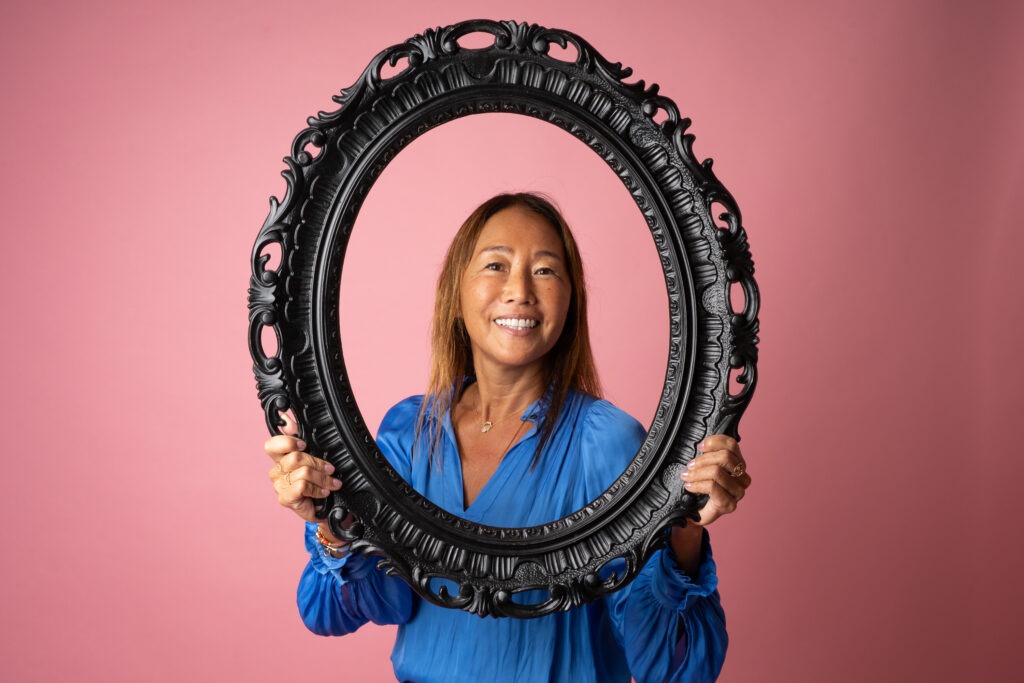Powerful Women in Tech: Kayo Hattori
Less than 20% of startups worldwide are founded by women. From Tokyo to Paris, Kayo Hattori has turned risk into an art form. She embodies a new breed of 21st century women who no longer ask for permission to lead : they simply do it.

Kayo Hattori is among the few who turn obstacles into opportunities, transforming cultural difference into a true strategy for success. Splitting her life between Tokyo and Paris, this entrepreneur-turned-investor represents a new generation of women who aren’t just breaking barriers ; they’re redrawing the map with poise, precision, and fearless ambition.
« Learn to improvise, to survive. »
Shaped by Japan’s culture of discipline and France’s flair for creativity, Kayo Hattori has built a career at the intersection of two worlds that rarely mix, and yet she makes them sing in harmony. She started out in marketing at L’Oréal Japan, deep inside a corporate powerhouse driven by competition and rigor. There, she learned the mechanics of global empires, and the quiet politics that rule them. « You have to accept that you won’t have a private life during your first year, » she recalls, « and learn to improvise, to survive. » It was an initiation into corporate life that taught her something lasting : ambition means nothing without resilience, and success demands not just hard work, but also reinvention.
Eventually, her entrepreneurial instinct overpowered the comfort of corporate life. In 2000, she took a leap into the unknown and co-founded Datawords, a digital agency ahead of its time, built to help brands speak authentically to international audiences. A visionary digital agency designed to help brands speak to global markets with cultural precision. At a time when internationalization was still a distant concept, she already foresaw the importance of communication grounded in diversity. Translation, adaptation, contextualization : these pioneering gestures would later become a model. Investors doubted her, and she persisted. Time proved her right : Datawords went on to become a global leader in digital marketing.
When she launched the company, no blueprint existed. « When we started, there was no model to follow, » she remembers. « We were five business school graduates who couldn’t code. The hardest part wasn’t finding clients, it was finding the right people to bring our idea to life. » That idea – a company born global – foreshadowed today’s generation of startups designed from day one to scale across borders. Still, Hattori remains pragmatic: « Not every startup should go global, right away. You need to prove your concept locally, build a strong base, and only then expand. Going international takes patience. »
« That mix of viewpoints is what gave Datawords its soul.. »
At Datawords, diversity isn’t a nice-to-have, it’s the lifeblood of the company. Today it brings together more than twenty-five nationalities, a mosaic of languages, perspectives, and ideas. « People from different backgrounds bring a different kind of energy, » she says. « That mix of viewpoints is what gave Datawords its soul. »
Over time, Hattori developed a clear conviction : entrepreneurship isn’t reckless risk-taking : it’s the art of calculated risk. With Juka Japan, she now helps startups expand abroad through cultural intelligence, advocating for an approach rooted in deep cultural understanding. « Even the best product can flop if it’s not culturally attuned, » she warns.
As Investment Advisory Comitte of the French Founders investment fund, a global network of French entrepreneurs based in the US, she’s been helping open access to tech investing through a rolling fund that starts at €25,000 a year breaking down barriers in a world once reserved for insiders.
« When a startup stops communicating, that’s when you start to worry.. »
Since the pandemic, she’s also become a business angel, choosing projects guided as much by instinct as by reason. « There has to be a spark, » she says with a smile. « Without that, it’s not worth it. »
Two ventures have stayed with her : an American platform that lets fans financially support artists, which has seen explosive growth, and Naäk, a Canadian startup founded by two trail runners who make energy bars out of cricket protein. « What I look for is alignment between the idea and the energy of the people behind it. » What she avoids at all costs? Silence. « When a startup stops communicating, that’s when you start to worry. Trust only grows through open dialogue. »
Japan, she says, is a fascinating but demanding market. « It takes four times longer to build trust there than anywhere else, » she notes. A country steeped in tradition and hierarchy, it requires tact, humility, and local insight. « Never enter Japan without a local partner, » she cautions. From cosmetics, where formulas must meet strict regulations to tech, where bureaucracy can slow everything down, success depends on patience.
Still, she’s optimistic : « The weak yen is boosting tourism, the government is welcoming foreign investment, and a new generation of Japanese founders is finally looking outward. » Japan itself, she believes, embodies the balance every entrepreneur should aim for : a blend of precision and subtlety, tradition and innovation. « Test your market first, and don’t focus only on Tokyo, » she advises. « Cities like Osaka, Nagoya, and Fukuoka offer incredible opportunities that most people overlook. »
« If women want to build companies and invest, they need to take control themselves.. »
In a world still dominated by men, Kayo Hattori speaks about women’s empowerment without slogans or bitterness, just clarity. « If women want to build companies and invest, they need to take control themselves. » A simple statement, but one that sounds like a manifesto. Because in today’s world, where boldness has become the new normal, waiting for permission is the same as giving up.
That philosophy inspired her to launch Global Woman Founders, a network built to foster trust, confidence, and connection among women entrepreneurs. « It’s not about exclusion, » she insists. « Men are welcome too, but for now, it’s about giving strength to women who need to feel seen, supported, and understood. »
In an ecosystem that still leans heavily male, the network has become a lighthouse offering energy, inspiration, and solidarity, while building bridges toward broader collaboration.
From Tokyo to Paris, Kayo Hattori has turned risk into an art form. She embodies a new breed of 21st century women who no longer ask for permission to lead : they simply do it, guided by the quiet conviction that the future belongs to those brave enough to create it.

